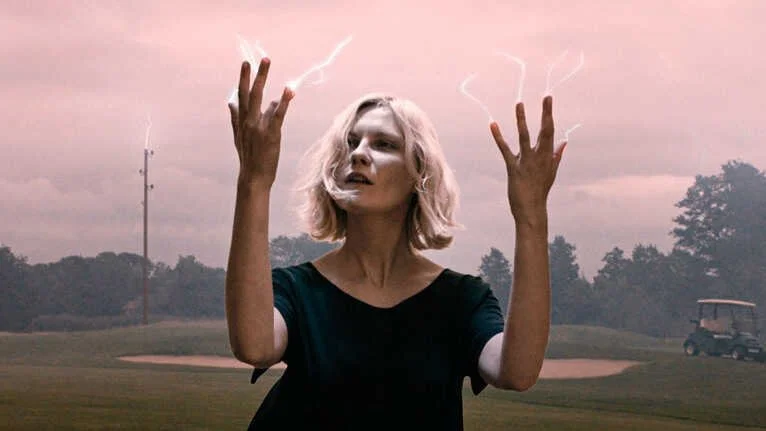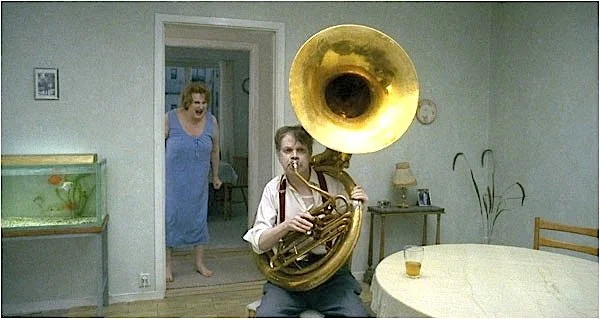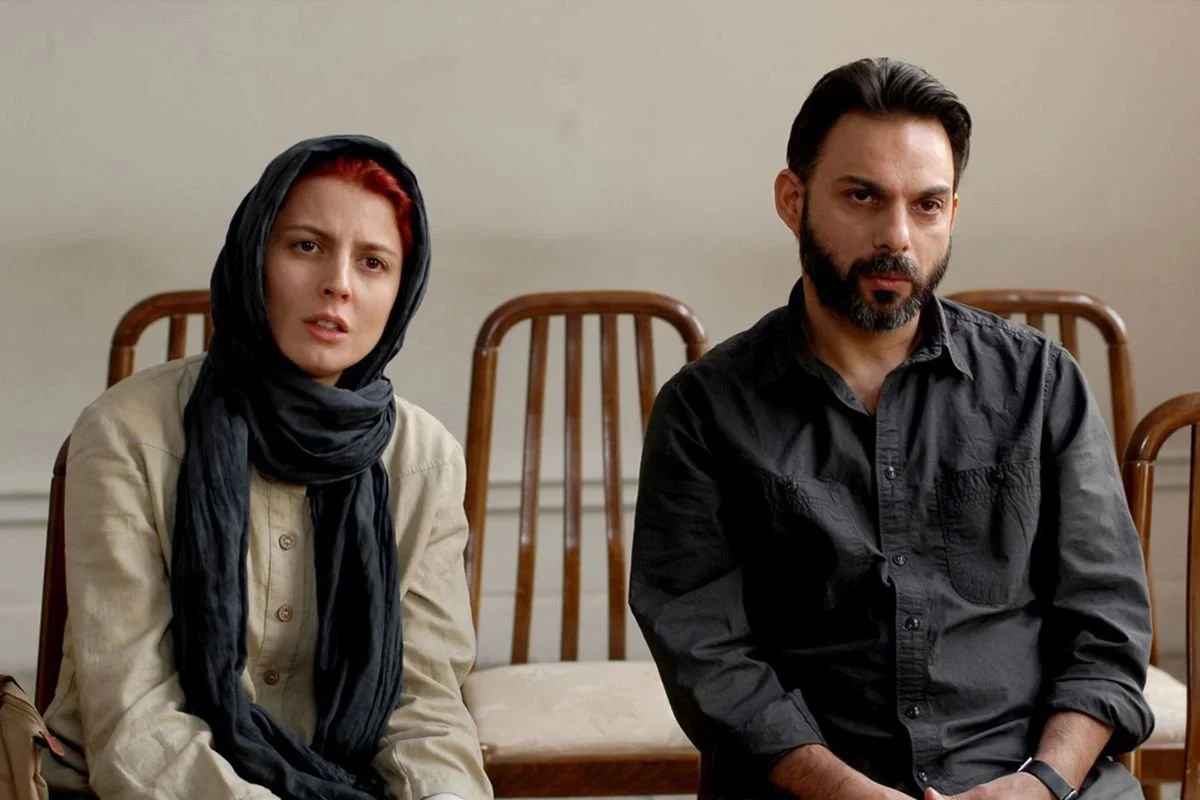Film Reviews
A few film reviews for MovieMail. If it’s long, miserable and meandering, I might just like it.
Melancholia
For those who can forgive Von Trier his foibles and give in to his visual hypnosis, Melancholia is a work of mesmerising beauty. A dramatic and moving journey, this film will stay with you long after the credits have rolled.
Director: Lars Von Trier
Lars Von Trier doesn't care if you like him – and that's exactly why I invariably do. The controversial Danish filmmaker’s latest work Melancholia is a typically self-indulgent vision, which will baffle many and incense still more. But that's OK as far as I'm concerned, because Melancholia is unashamedly from the heart. A bold and original depiction of depression, which carries the facetious personality of its director, Von Trier lays bare his personal struggle with mental illness through the mighty metaphor of apocalypse.
The film begins with a breathtaking ten-minute overture of dream-like tableaux set to the imposing score of Wagner's Tristan und Isolde. It serves as a portentous preview of what will follow, and a romanticised synopsis of the film's core themes. Jaw-dropping stuff, it is worth the viewing-investment alone.
Melancholia is set in a not-too-distant future, where an ominous planet can be seen moving steadily closer to the Earth. At first, it’s not considered a threat; we hear assurances that scientists have confirmed the planet will pass rather than collide.
The film is divided into two halves, each focusing on one of two sisters. In the first we join Justine, played by the hugely talented Kirstin Dunst, at her wedding party. Initially she appears at home with her surroundings, but a sense of detachment rapidly takes hold. And we can see why. The family tensions, most notably stemming from her estranged parents, are comical yet uncomfortable. As Justine retreats mentally, her guests become faceless characters whose motion and noise create a claustrophobic and chaotic backdrop to the unravelling of her mind. By the end of the evening, the marriage is wrecked and so is the bride, as Justine succumbs to the irresistible pull of her depression. The remainder of the first half sees Justine descend into a zombie-like state under the overwhelming weight of her sadness, while her older sister Claire oscillates between hatred for her self-absorption and a hopeless compulsion to nurture.
During the second half, the focus turns to Claire. Her own mental state is now deteriorating in response to the increasing threat of the looming planet. Justine, on the other hand, is soothed by the imminence of Armageddon. For her it is a chance to finally find peace. Von Trier's juxtaposition of insanity and depression is interesting. Perhaps he is explaining to those who have not lived with the burden of mental illness, and so fear and misunderstand it, that they are not in fact one in the same. Although depression distorts and desaturates, a sort of clarity may be left after it abates.
Melancholia's depiction of depression is creative, brave and in-your-face challenging. The film explores the impact on those who orbit its influence; the intangibility of its destructive power; and the inescapable isolation felt by those who live beneath its crippling weight. You never know when it will hit, but expect disastrous consequences when it does. And while the subject matter may seem dreary, the results are anything but. Don't be fooled into thinking this film takes itself wholly seriously. From the over-the-top effects to the bizarrely unreal reality, Von Tier has some fun here, and if you accept that you'll enjoy yourself more too.
Its critics will tell you the film is too long; that the structure is stilted; the writing pompous, often preposterous; and that the end-of-the world metaphor is applied with a trowel. Well, they're not wrong. But that doesn't change the fact Melancholia is remarkable, refreshing cinema, and one of the best - if not the best - films of 2011. For those who can forgive Von Trier his foibles and give in to his visual hypnosis, Melancholia is a work of mesmerising beauty. A dramatic and moving journey, this film will stay with you long after the credits have rolled.
You, The Living
Director: Roy Andersson
Through a series of surreal vignettes, Andersson explores the banalities of everyday life, the loneliness and frustration we mask with routine, and the poignant disappointment of unfulfilled dreams. It's hilarious. No, seriously.
A witty study of the laboriously mundane, Roy Andersson's You, the Living is a hugely original work with voyeuristic appeal. Through a series of surreal vignettes, Andersson explores the banalities of everyday life, the loneliness and frustration we mask with routine, and the poignant disappointment of unfulfilled dreams. It's hilarious. No, seriously.
You won't find the traits of traditional storytelling here. Andersson's approach mirrors the trite trajectory of our own lives, which are made up of singular and unremarkable events leading nowhere in particular. There is no beginning, middle and end; nor a narrative linking one scene to the next. Although the characters occasionally interact, these overlaps have no meaning. The cast have been painstakingly chosen for their bland physical appearance and their surroundings are nondescript.
The visual beauty of this film is undeniable. Each bleak scene, shot with a locked-down camera, is exquisitely composed. Every single detail is considered: the muted colour palette, perspective, prop placement and light. Eccentric characters play their roles on theatrically stark sets, a stage right and left always discernible; their isolation laid bare with Hopperesque technique.
The loneliness that stems from the disconnection we feel within our relationships is prevalent. The brass-band members whose music practice is disdainfully received by their wives (their disinterest is depressing and yet comic in its familiarity). The alcoholic who dreams of owning a motorbike to escape her misery despite the boyfriend who accompanies her in each scene. The girl who shares a drink with a rock star and falls in love - yet he never contacts her again. The fat cat whose social life exists because of his money alone. The wife who sadly reflects her daydreaming husband never thinks of her.
Despite its themes, You, the Living is anything but dreary. You'll find every scene and character captivating. What's more, expect to laugh out loud at the absurdities - rather than tragedies - of the human condition.
A Separation
Thrilling drama crafted from extreme realism, A Separation’s impeccable pacing feeds twists and turns with a discrete precision that will keep you hooked from start to finish.
Director: Asghar Farhadi
In contrast to Hollywood's relentless obsession with the struggle of good over evil, 2012 Academy Award winner for Best Foreign Language Film A Separation concerns itself with the rather more complex narratives of real-world drama. Farhadi invites you to sit in judgement on ordinary people as they thrust and fumble their way over murky moral terrain, in the context of rigid theological doctrine that cares little for individual suffering.
A Separation opens on a married Iranian couple arguing the case for divorce and custody of their child to a government official. They face the camera, which observes with impartial repose as the pair bicker and plead. Wife Simin wants to escape the limitations of her native country to give their daughter a brighter future. Her husband Nader, however, refuses to leave his father, who’s suffering from advanced Alzheimer's. Whose side would you take?
Differences irreconcilable, Simin moves out, leaving her husband with household chores and the care of his rapidly deteriorating father. Nader is left with an immediate challenge: who will take on the “women’s work”? He hires a young mother, Razieh, to help.
While Nader is at work, his father wets himself and is unable to change his own clothes. For Razieh, to see a man unclothed who isn’t her husband is a sin. Yet in the face of the elderly man’s distress, how can this be morally questionable? She is forced to consult her imam, so that a man can tell her how she’s allowed to act.
What follows is a sequence of events leading to the miscarriage of Razieh's child. The initially unequivocal details quickly become muddled as individuals react to grief, the threat of legal judgement, class prejudice, the rules of faith and the strength of family ties. As truths unravel and lives fall apart, you won't take sides or condemn, you'll empathise with every player equally.
Nader takes his confused and frail father to the doctor, insisting the elderly man's body is marked with bruises that prove Razieh is lying. Consumed with his desire for justice, he begins to undress his frightened father - but shame stops him in his tracks. In an instant he is overwhelmed by a universal human emotion: compassion. What matters isn’t who is wrong or right.
Reminiscent of the 2007 Palm d'Or winner 4 Months, Farhadi has crafted thrilling drama from extreme realism. His impeccable pacing feeds twists and turns with a discrete precision that will keep you hooked from start to finish. Prepare to be swept along by his non-intrusive direction that allows the brilliant performances and skilful plotting to shine. Fresh, fascinating, intelligent, A Separation is modern cinema at its most exciting.



